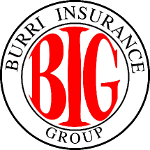|
There is updated information for Catholic Religious struggling with their 1095's, In the paper below, Ms. Erica Knox, Esq., LL.M. of Burri Law provides some general information on these newly announced changes.
_____________________________________________________
IRS extends deadline for providing Forms 1095-C to full time employees.
IRS gave "good faith" relief again this year.
HOWEVER, IRS DID NOT EXTEND EMPLOYER DEADLINE to file Forms 1094-C and 1095-C with the IRS.
 On November 18, 2016, the IRS released Notice 2016-70, extending the due date for furnishing 2016 Form 1095-B, Health Coverage, and the 2016 Form 1095-C, Employer-Provided Health Insurance Offer and Coverage, to employees, and extending good faith transition relief.
The Affordable Care Act requires every applicable large employer (ALE) or a member of an aggregated group that is determined to be an applicable large employer (ALE member) to file with the IRS a Form 1094-C and Forms 1095-C on or before February 28, 2017 (March 31, 2017 if filed electronically) and to furnish to full-time employees a Form 1095-C on or before January 31, 2017.
Before this Notice was released, the due date for furnishing Forms 1095-B and Forms 1095-C to full-time employees was January 31, 2017. The new due date is March 2, 2017.
This Notice does not extend the due date for filing with the IRS the 2016 Forms 1094-B, 1095-B, 1094-C, or 1095-C, which remains February 28, 2017, if not filing electronically, or March 31, 2017, if filing electronically.
Also, this Notice extends relief from penalties to employers that can show that they have made "goodfaith" efforts to comply with the information-reporting requirements for 2016 (both for furnishing Forms 1095-C to employees and for filing the Forms with the IRS), but have given incorrect or incomplete information reported on the return or statement. If employers can show the IRS that they attempted to file correctly, in good faith, they may not be subject to penalties. "Good faith" does not include willfully excluding information, or willfully reporting information that is not true.
As stated in the Notice:
"This relief applies to missing and inaccurate taxpayer identification numbers and dates of birth, as well as other information required on the return or statement. No relief is provided in the case of reporting entities that do not make a good-faith effort to comply with the regulations or that fail to file an information return or furnish a statement by the due dates (as extended under the rules described above). In determining good faith, the Service will take into account whether an employer or other coverage provider made reasonable efforts to prepare for reporting the required information to the Service and furnishing it to employees and covered individuals, such as gathering and transmitting the necessary data to an agent to prepare the data for submission to the Service, or testing its ability to transmit information to the Service. In addition, the Service will take into account the extent to which the employer or other coverage provider is taking steps to ensure that it will be able to comply with the reporting requirements for 2017."
The filing extension and "good faith" reporting relief only applies to the 2016 reporting year. Employers should be implementing best practices now in order to prepare for future years.
-By Erica Knox, Burri Law P.A.
|
|
Questions may be directed to:
Robert Smedley,
Burri Insurance, L.L.C.
Office: (813) 818-7600
Cell: (727) 698-8141
|
Average Age
First, the average age for those religious members that are under 65 is still much higher than a carrier's general population. They are also the highest utilizers of paid benefits. A change in expected claims between a 19-year-old and a 24-year-old is very small. However, the difference in expected claims between a 59-year-old and 64-year-old is staggering. The premiums are going to reflect this increase in risk.
Community Rating
Part of the Obamacare Mandates to insurance companies is that they could no longer medically underwrite groups with less than 50 employees (considered small group) for fully insured cases. Instead, carriers must use a "community rating" system. This underwriting system is one where every person of a particular age and zip code, will pay the same rate for a plan regardless of the employer, based on that carrier's book of business. This is why rates cannot be negotiated with the carrier. The set rate is the set rate.
An order may have very healthy members and/or employees and still experience dramatic rate increases, with almost no recourse.
Young & Healthy Employees Leaving Community-Rated Pools
Insurance companies, attempting to gain an edge in a market, developed 'level-funded' plan designs. These plans allowed groups that normally would have been considered too small to absorb the risk of being self-funded, to do so. These plans are not considered "fully insured," even though no more risk associated with them.
The employer still pays only the premium and the claims are paid per the contract. There is no change for the employee. But, with these plans, claims reserves not spent during that plan year are shared with the employer, not kept as profit for the insurance company. That means if your group keeps costs down, your group can get a check back at the end of the year. For this reason, level-funded plans are also referred to as 'participating plans', because the employer participates in the savings.
Importantly, level-funded plans are not subject to state mandated 'benefits' such as abortion or contraception like fully insured plans are. This allows the insurance company to build a canonically-correct plan that mirrors your existing benefits, but does not force you to provide or pay for objectionable services in any way.
Insurance companies are also able to medically-underwrite these level-funded groups. Employers who are willing to be medically-underwritten often find their rates are significantly less than the community-rated pools. This leads to healthy groups leaving the community rated pools to go to these level-funded plans. As more and more of these groups leave the community-rated pools, the average age of the community pools continues to rise. This process is called adverse selection, and is one of the most significant factors in why rates have been increasing year-after-year.
Further Complications
1) The depreciating market for community-rated plans has carriers providing fewer options in benefit designs. For example in Florida, Aetna, which used to offer dozens of plan designs for fully insured plans, now only offers one. If you are fully insured, you have one set of options to select, and those only have one set of age-based rates per zip code.
2) Of the carriers that are offering a 'level funded' alternative, very few insurance companies offer these plans to non-profit organizations.
There is Hope
Burri Insurance is working with carriers that offer level-funded plans to Religious Orders.
Many of our clients have already successfully transitioned from expensive fully-insured plans to these level-funded plans with great success. We have many groups that have immediately lowered their monthly health insurance premium rates below fully-insured rates. Some of these groups have gotten participation checks at year-end for tens-of-thousands of dollars. We have been implementing these plans for many years now, and the results speak for themselves.
These are reliable and affordable plans that can provide relief from high health insurance rates for Catholic Religious Orders.
If you have received a shocking end-of-the-year health insurance renewal and would like a "second opinion" before renewing, please contact us today, there is still time before the January 1st, 2019 renewal date.
Or you may call Robert Smedley directly at: (727) 698-8141
